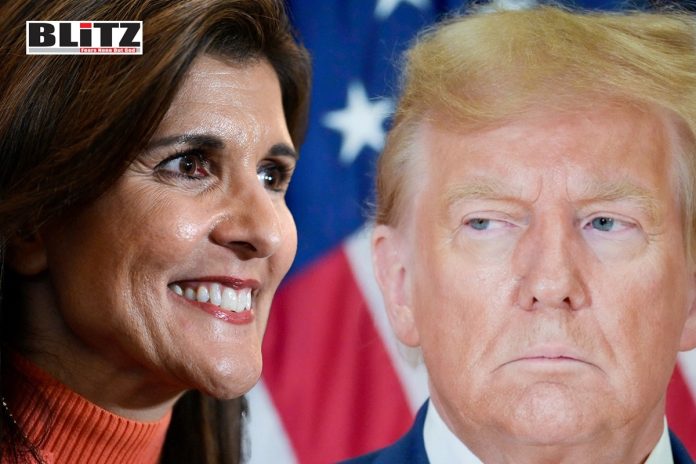In the ever-evolving landscape of American politics, discussions surrounding the mental fitness of political figures have become increasingly prominent. Former Republican presidential candidate Nikki Haley recently turned a spotlight on the mental fitness of the influential former president, Donald Trump. The incident in question occurred during a campaign event in New Hampshire, where Trump falsely accused Haley of failing to act during the violent assault on the US Capitol on January 6, 2021. Haley, however, was quick to clarify that she was not in charge of Capitol security at the time and, more significantly, was not even in office.
During the campaign event, Trump appeared to confuse Haley with then-House Speaker Nancy Pelosi, attributing the failure to respond effectively to the January 6 insurrection to Haley. He claimed to have offered 10,000 soldiers and National Guard personnel to assist with security, an assertion that Haley promptly refuted, emphasizing that she had no role in the Capitol’s security operations.
While some dismissed Trump’s confusion as a simple mistake, Haley expressed concerns about the mental fitness of individuals seeking or holding the presidency. Her remarks brought attention to a broader conversation about the mental acuity of political leaders, particularly those advancing in age.
Nikki Haley, who turned 52 on the day of the incident, has consistently advocated for a more stringent approach to assessing the mental competency of political candidates, especially those over the age of 75. In a Fox News interview following the New Hampshire rally, Haley expanded on her position, arguing that the nation needs leaders at the “top of their game” who can focus on critical issues such as national security.
“We need people that are focusing on national security… Do we really want them throwing out names and getting things wrong when they’re 80 and having to deal with Putin and Xi and Kim and North Korea? We can’t do that,” Haley emphasized during the interview.
Critics have long speculated about Donald Trump’s mental and physical well-being, suggesting signs of aging. The former president, now 77, addressed these concerns earlier in the week by recounting an episode where he claimed to have “aced” a test of mental acuity. According to Trump, he correctly identified various animals during the assessment.
Despite these concerns, Trump’s political standing appears to remain robust. The former president, who dominated in Iowa’s presidential caucuses, continues to be the overwhelming favorite among Republicans nationwide. The disconnect between public perception and political reality raises questions about the prioritization of concerns related to age and mental fitness in the eyes of voters.
The debate surrounding the age and mental fitness of political leaders is not a new one. During President Joe Biden’s campaign, Trump and other Republicans consistently raised doubts about Biden’s cognitive abilities, given his age of 81. This strategy aimed to paint Biden as unfit for a second term, drawing attention to potential challenges in handling the responsibilities of the presidency.
However, Haley’s comments represent a unique and direct challenge from within the Republican party to Trump’s mental fitness. By addressing the issue head-on, she brings to light the need for a more nuanced and consistent approach to evaluating the mental capabilities of political leaders, regardless of party affiliation.
One of the more puzzling aspects of Trump’s New Hampshire remarks was his claim that both Pelosi and Haley had turned down an offer of help while the Capitol was under siege. The House committee that investigated the events of January 6 found no evidence to support Trump’s assertion, raising questions about the accuracy of his recollection and the potential impact on public perception.
Nikki Haley’s remarks on Donald Trump’s mental fitness have reignited a broader conversation about the cognitive abilities of political leaders. As the nation grapples with the intersection of age, experience, and mental acuity in the context of presidential leadership, voters must carefully consider how these factors impact the ability of candidates to navigate complex challenges. Whether Trump’s confusion in New Hampshire was a momentary lapse or indicative of broader concerns, the discussion surrounding mental fitness in politics is likely to persist as the 2024 presidential race unfolds.





Nikki Haley is finished. Kaput.